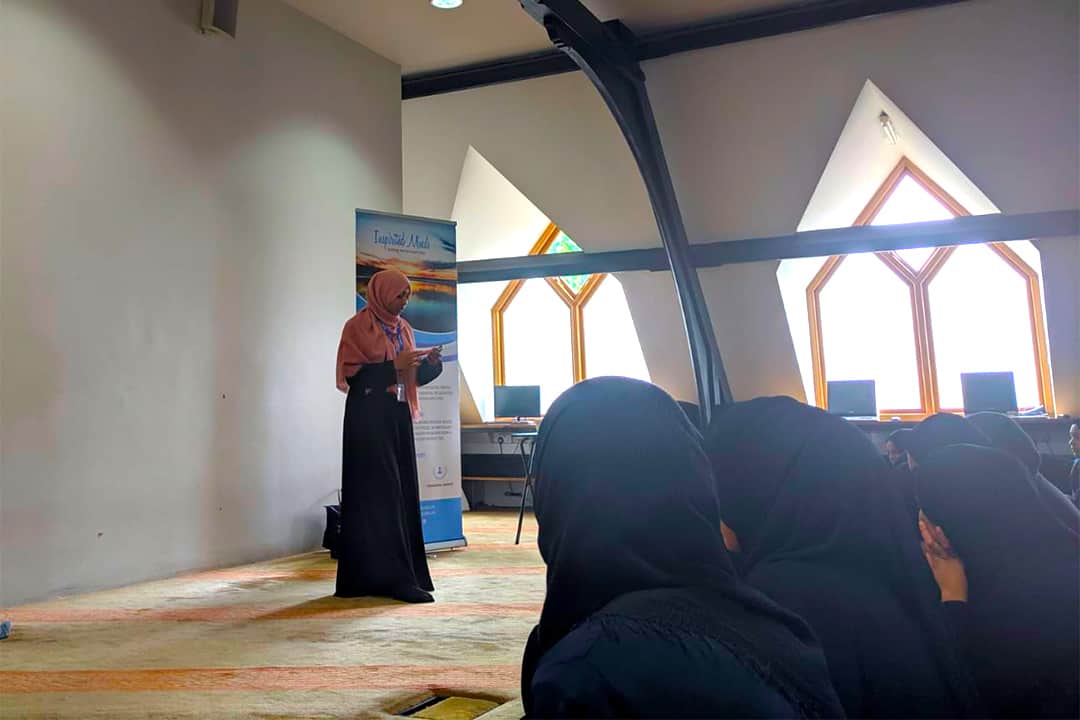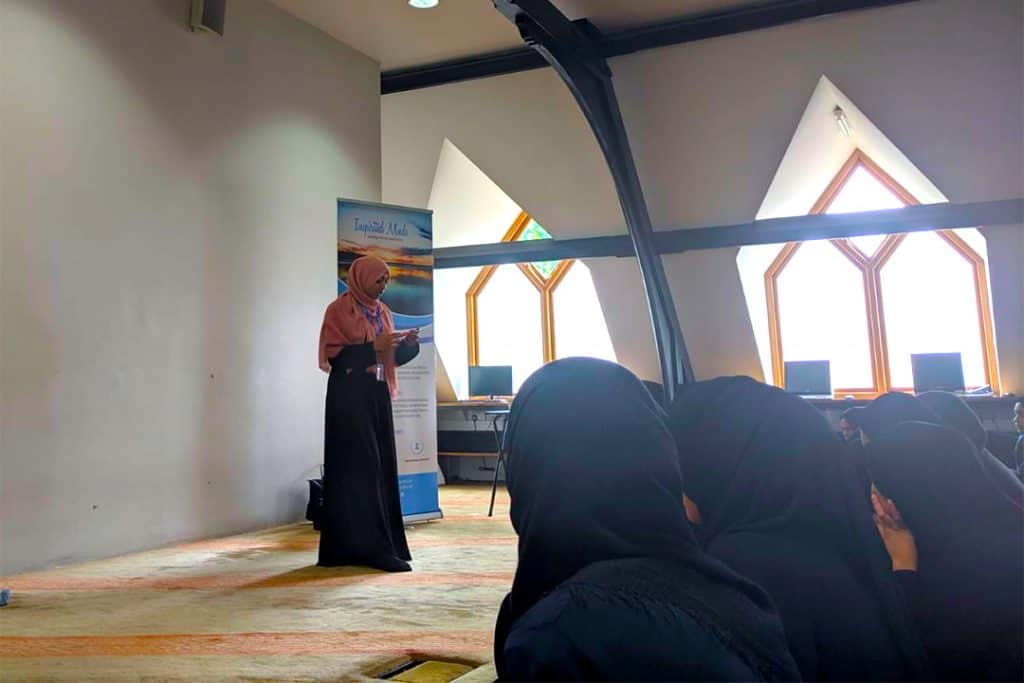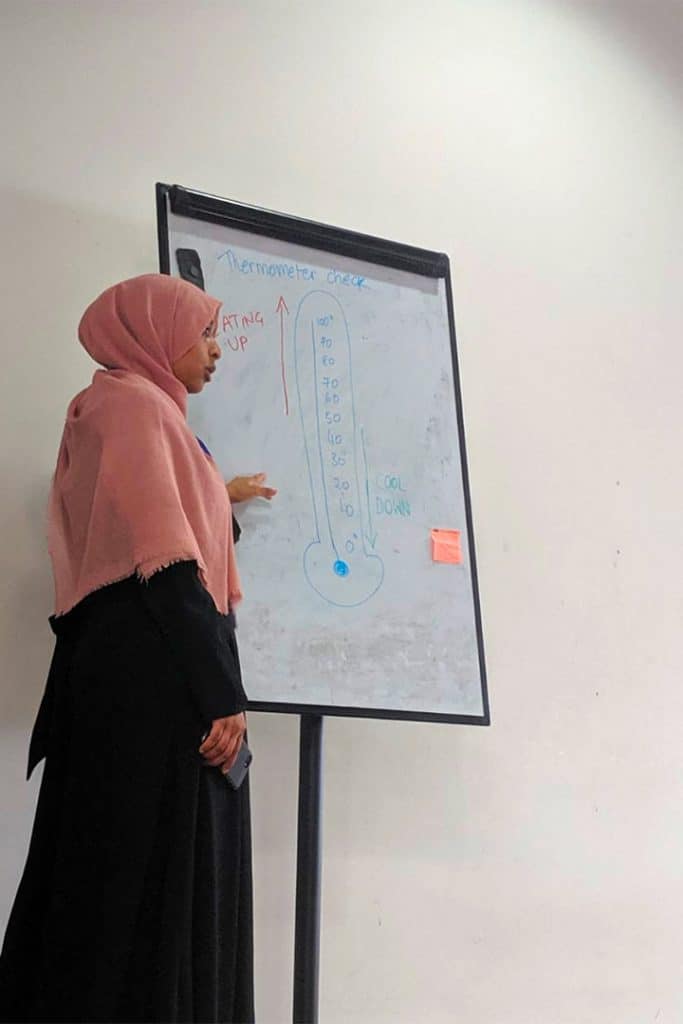Inspirited Minds was invited to Al-Azhar academy to run an assembly to about 100 female Muslim teenagers about mental health difficulties commonly experienced by this particular group. The assembly was an interactive one where the students asked and answered questions.
The content covered common difficulties that a Muslim teenager may face during school such as getting worried, anxious or stressed either from exams, expectations from parents, developing and maintaining friendships, getting bullied and struggling to find a balance between living in a western society and within Islamic principles.
For young people, demonstrating information visually helps with processing and digesting the information. I used a visual activity to demonstrate how the young girls can identify when things are getting too overwhelming for them. Although most of the girls were quiet during the assembly (which this is understandable), we spent some time together reflecting on their understanding on the content covered, and it seemed like they received it well.
Prior to the assembly, I asked the school teacher in contact with us, to ask their students to write down questions on a post-it note about what they wanted answered in the assembly. This worked well as I incorporated the answers in my talk and dedicated the end to answer more.
It was a really enjoyable experience talking about mental health in an indirect way and a way in which the young people would understand. I received positive feedback from teachers and students that they had learnt a lot from the talk. Upon reflection, it seems like there’s still more work needed to educate young people and teachers about mental health. Alhamdullilah, Inspirited Minds has been invited again to run a mental health training for teachers.
In sha Allah, let us also make dua for those who are struggling, with every form of difficulties. Some may openly speak about it and some may silently battle with it. May Allah SWT ease their difficulties, may He give them the strength to ask for help, to feel loved and to love themselves! Ameen.
Top tips for schools when working with Muslim young people:
- Be transparent and authentic with them. By this we mean, tell them what your thinking (i.e. are you worried, concerned about …).
- If it’s difficult to get a young person to speak, let them know that you’ll be available when they are ready to speak to you. Alternatively, offer them an easier way to speak to you (i.e. letter, drawings)
- Talk about taboo subjects so it eases the pressure from them to ask you about it. If you talk about it first, it opens the doors for them to ask questions and about their curiousities.
If you would like to get involved in raising awareness about mental health in your local community, we are looking to grow our Outreach Team to different cities around the country. We will ensure that you are fully trained and confident before running workshops and talks. Please visit our vacancies page for more information.






